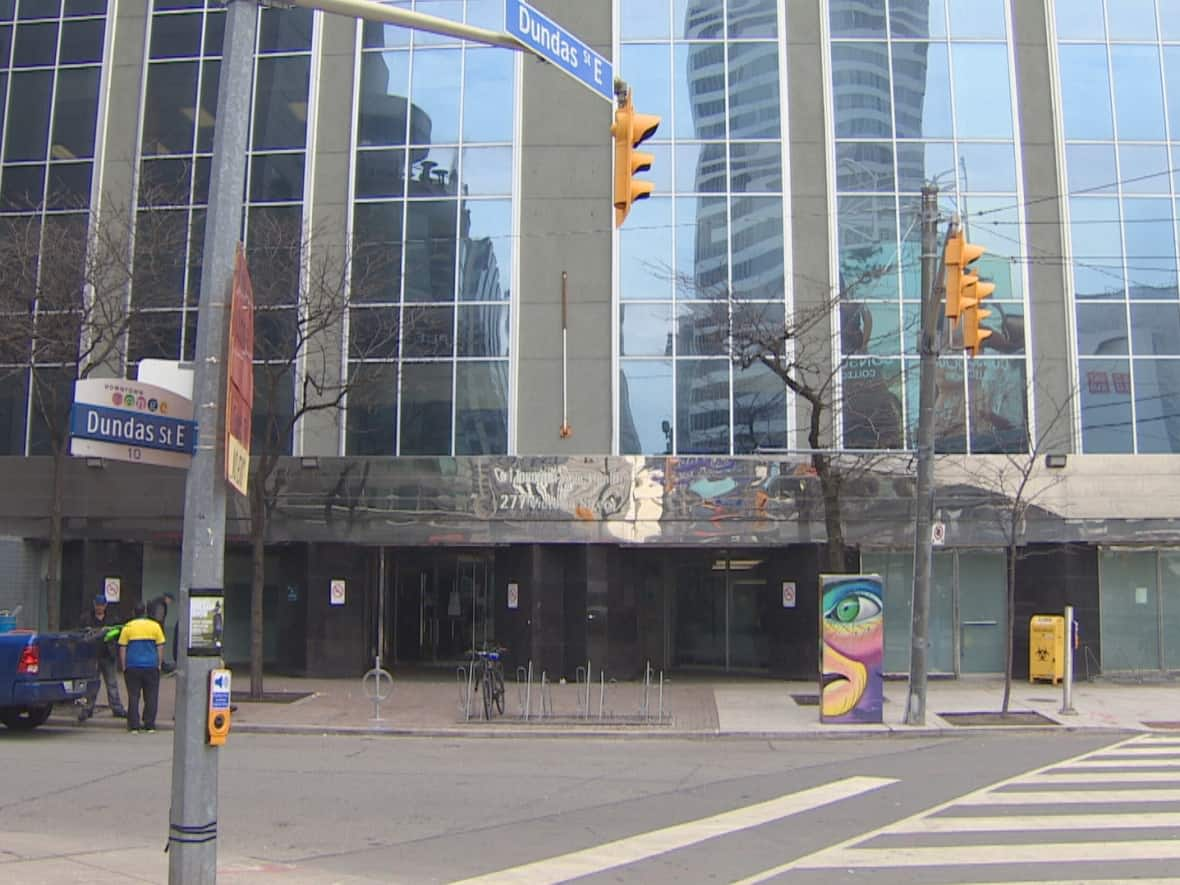A well-known safe injection site is moving and some worry about the impact on users

A well-known supervised injection site will be relocated due to the sale of a city property, and experts say they are concerned about the impact of the move on people who rely on it.
The Works, which provides supervised consumption and harm reduction services at 277 Victoria St., is facing relocation after Toronto Metropolitan University purchased the city-owned property along with 28 Dundas St. E., the city said in a news release on Tuesday.
A new location will be found for The Works in the next 12 to 24 months, the city says.
Toronto Public Health will work with the city's corporate real estate partners, including CreateTO, to find a new site and has already begun looking as possible locations with the help of St. Michael's Hospital and Toronto Western Hospital, the city says.
"CreateTO, in partnership with TPH leadership and their partners, will continue to support the relocation of these critical services over the next two years to ensure continuity of care and minimize the impact on residents and TPH clients," the city said in the release.
But Dr. Andrew Pinto, a physician and scientist at the University of Toronto, is among those worried the move could hurt users of the site.
Pinto says he was worried when he first heard that TMU was buying the Victoria Street building because the site has been there a long time. The Works first opened on Aug. 9, 1989.
"Where will people who have known this location for very long go and how will they be consulted as part of this transition?" Pinto said.
'These should be part of our environment,' says doctor
Pinto says there are risks when there is a sudden change in where people get "key" life-saving services. He said the services should be normalized and wonders if TMU would consider integrating the supervised injection site into the campus.
"These should be part of our environment, they should be part of universities, they should be part of hospitals and they should be part of public spaces," he said.

Pinto says it is important for the city to engage in "appropriate communication" about a new location so that people who need harm reduction services are not shocked when they find out it's not where it used to be.
"Another thought is to really engage the people who are using the services right from the start. What will it look like? How could they not only inform the transition but share the word about where they can go?" he said. "That process has to be done really, really carefully."
Pinto says he is concerned that there seems to be a long-term trend where services for vulnerable people, including health care, housing, social services, mental health services, are pushed out of the downtown core because of rising property values.
Harm reduction services are part of a culture and philosophy that seeks to embrace people who use substances as members of the community, he says, adding society needs to think not only about clean needles and safe supplies but also wraparound care.
Health impact assessment needed, doctor says
Dr. Talia Varley, physician lead of advisory services at Cleveland Clinic Canada, says it's important to remember that supervised injection sites are effective and save lives.

There are about 2,600 visits a day to supervised injection sites in Canada and they have been operating for a number of years with no reported fatalities on site in recent years, she said. The sites are especially important at a time when Canada is losing up to 20 people a day to overdoses.
Varley says it will be critical for the city to do a "health impact assessment" of the relocation to determine who is affected by the health care service change and how. Accessibility and availability are important, she adds.
"This is especially important for supervised injection sites because of that level of service required in the midst an overdose crisis due in part to an unpredictable and volatile drug supply," she said.
"We want to make sure people are getting needs met in their local area."
In a news release, TMU said both properties will create new opportunities for academic research and community supports.
The city says the sale follows direction from council to optimize the city's real estate assets, and will generate funding that will be put toward affordable housing.


